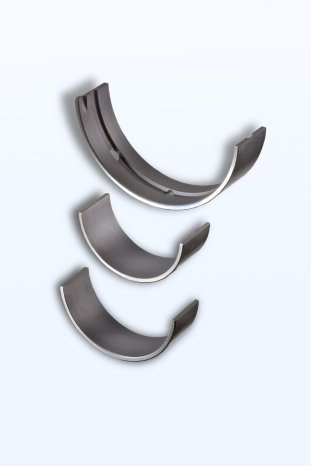While the pollutant lead was being eliminated as a plain bearing material, there was at the same time a demand for an increase in engine performance and torque within the engine manufacturing world. As a result, even higher demands were placed on lead-free bearings than their lead-containing predecessors had previously encountered. In developing the second generation of materials without lead, great value was therefore placed on high mechanical carrying capability and at the same time on good particle tolerability, i.e. an increased resistance against residual dirt inside the engine. The issue of "seizure resistance" - i.e. a possible prevention of fusing the bearing with the shaft surface - also became increasingly important. Both for two-layer bearings (made out of steel and aluminum) and three-component bearings (made out of steel and bronze or brass and a running-in overlay), the solution here was to use components specially targeted to reduce the risk of seizure and to do without elements that promote seizure-related tendencies.
Furthermore, plain bearings in combustion engines have recently begun to face a special new requirement for their usage in hybrid drive systems. The hybrid drive - often termed "the bridge to electromobility" - combines electrical drive systems with a gasoline or diesel engine. The combustion engine is utilized at various configurations levels - from micro-hybrid to mild hybrid to full hybrid vehicle - employing various transmission methods which have one thing in common: all of them offer worse hydrodynamic conditions for plain bearings with an increased share of mixed friction. KS Gleitlager therefore developed sliding layer systems with polymer running layers especially for the crank shaft bearings of start-stop engines. They feature a significant reduction of wear even under tribologically critical conditions and withstand the more difficult frictional conditions in modern hybrid vehicle engines.
Besides improved wear resistance in crankshaft bearings due to improved adaptability, polymer running surfaces also offer the advantage of increasing the resilience of connecting rod bearings and thus in the course of downsizing contribute significantly to the development of modern engines. Plain bearings thus help to bring about the currently mandated fuel consumption and emission reductions.

